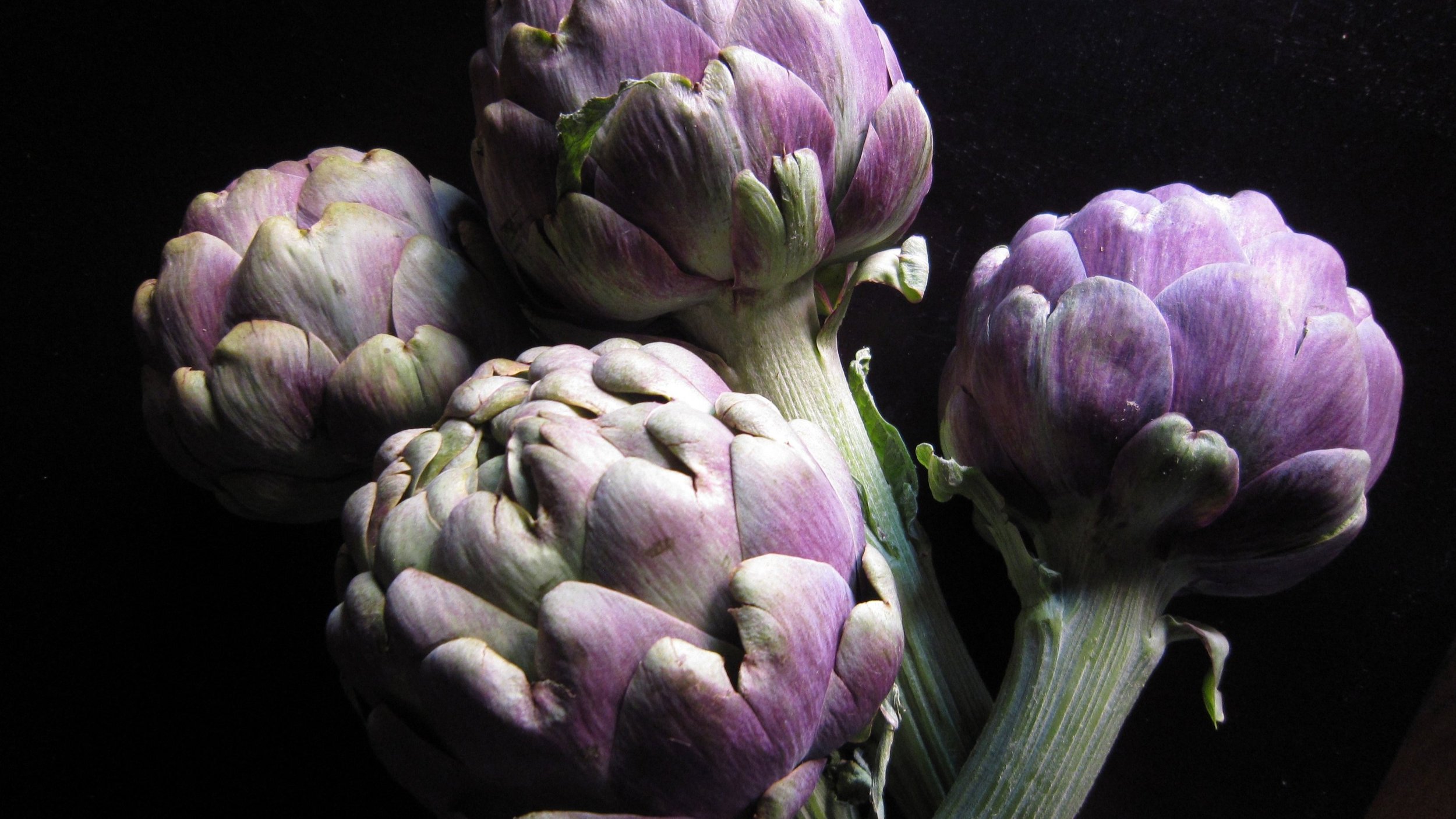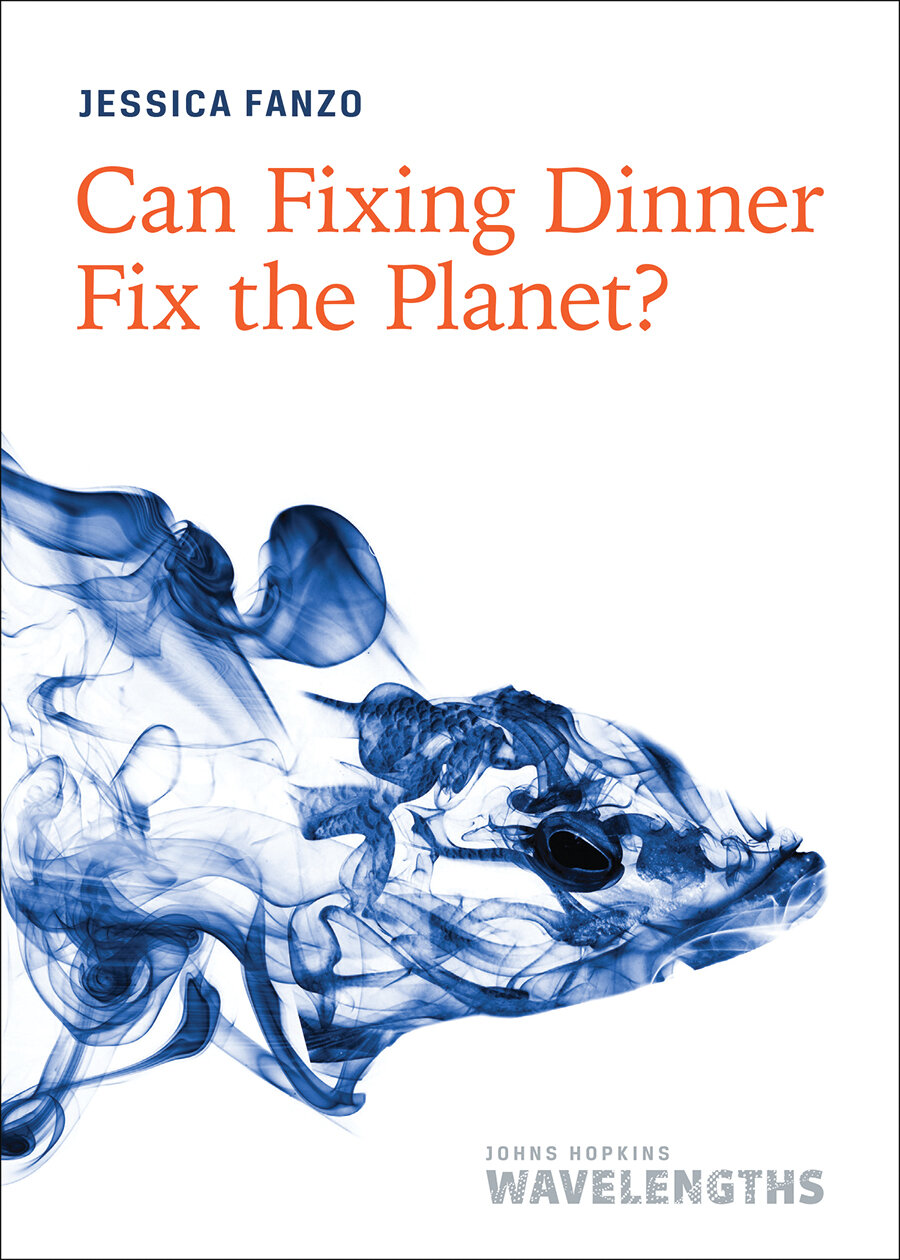I recently did an interview for the Reading List with Phil Treagus. I am a big book fan (my better half is a book publisher and archiver) but especially books on food (go figure). I also have two books coming out this year that I am pretty excited about. The first is through Johns Hopkins University Press titled “Can Fixing Dinner Fix the Planet?” The book is my own take on improving food systems and brings in a lot of my own experiences working on food issues in different places in the world. It comes out May 2021. The second book is a textbook published by Palgrave titled “Global Food Systems, Diets and Nutrition: Linking Science, Economics and Policy.” My colleague Claire Davis and I are excited to see this book out in June 2021.
This is what I had to say about books and you can also go to the original interview here.
How do you describe your occupation?
Educator and researcher of food systems.
Talk us through a typical day for you…
My day starts with a series of very early morning (begins around 5 am) zoom meetings with other researchers and organizations (UN, NGOs, etc.) working in Europe, Africa, and Asia on projects, publications, or initiatives. If I am not teaching a course that semester, I usually have one guest lecture to do and am usually on one or two public panels/webinars/keynote talks throughout the day. I try to block some time to read, write and do data analysis and, of course, to exercise (one hour a day)—usually mid-morning or late afternoon. Sometimes, I have 10-15 meetings throughout the day, so having concentrated focus time is challenging. Dinner is always the highlight of the day. We eat early, like 5:30, and my husband whips up gourmet meals. We usually watch something on Netflix or Criterion for about an hour or so. Then back at it to do a bit of writing in the early evening. I am in bed (and asleep) by 10 pm.
What are you reading at the moment, and what made you want to read it?
Science Fictions: How Fraud, Bias, Negligence, and Hype Undermine the Search for Truth by Stuart Ritchie. With so much dis- and misinformation on facts, data, and evidence, and the significant conflicts of interest in the food world, I was very keen to look inward into the science community that generates information. Where have we failed? Where are our faults? What could we do better? This book highlights the pitfalls of how we develop, communicate and vet science (with nutrition examples throughout the book) and turns the mirror on the science world. It is fantastic!
Can you remember the first book you read by yourself?
It is a toss-up. The two that stand out to me and are forever imprinted on my brain is Mrs. Frisby and the Rats of Nimh by Robert O’Brien and James and the Giant Peach by Roald Dahl. Strangely, and I haven’t thought about this until just now, both involve the food world. Mrs Frisby (a mouse) needs to move her home, which is endangered from the fields’ annual spring plowing. She asks a sophisticated bunch of rats for help. The story of James centers on a boy who enters a peach, and his world changes. Both stories highlight the magic and mysticism of ecosystems and experiences with that magic.
Are you a page folder or a bookmarker?
Page folder. But I go one step further. I fold the top of the current page I am reading so I know where I am the next time I pick up the book. I fold the page’s bottom if there is something on that page I want to go back to or research later.
Can you tell us a little more about the Global Food Security Journal?
The Journal strives to publish evidence-informed strategic views of experts from a wide range of disciplinary perspectives on prospects for ensuring food security, nutrition, and health across food system issues. We wish to publish reviews, perspectives articles, and debates that synthesize, critique and extend findings from the rapidly growing body of original publications on global food security, nutrition, food systems, and related areas; and special issues on critical topics across food security, food systems, and nutrition including how these are impacted by climate and environmental dynamics.
If you could gift yourself books at age 16 and age 25 – what would they be and why?
The Omnivore’s Dilemma: A Natural History of Four Meals by Michael Pollan and The End of Food by Paul Roberts. Pollan has mastered the craft of telling compelling food stories that have political, social and environmental repercussions in such an approachable way. While the book focuses mainly on the United States, it does raise questions as to the sustainability and ethics of how we grow our food and the individual dietary choices we make every day. Pollan has his fair share of critics, but I have yet to see an academic write such a compelling narrative on the fractured global food system. Paul Roberts’s book had an even deeper impact on me. It was hard to eat after reading his book because essentially, you feel the world is doomed! As Jim Morrison of The Doors sang, “the future is certain and the end is always near.” The End of Food, as the title suggests, brings those lyrics to life…
If you could invite 5 authors (dead or alive) to a dinner party – who would they be and why?
Amartya Sen (for his incredible influence on how we view poverty, famine, and human development and his many authored books including Poverty and Famine). Mark Kurlansky (for his incredible journalistic deep dives into things like Salt, Cod and Paper). Leah Penniman (author of Farming While Back and co-owner of Soul Fire Farm. A walking the talk author and entrepreneur!). Rachel Carson (for her landmark book Silent Spring that influenced the entire environmental movement). Joseph Campbell (his vast knowledge on the human experience and author of A Hero with a Thousand Faces). I highly recommend the interviews he had done towards the end of his life with Bill Moyer. After watching that, I wanted to be better at my craft.
What was the last book you purchased, and why did you buy it?
New Climate War by Michael Mann. Michael is a climatologist at Penn State. He is a clear communicator and fantastic science whose work has helped build the evidence on global warming. His new book is all about the politics of inaction on climate. In the food world, and very much tied to climate, we face similar issues of political inertia, interference and power imbalance of powerful industry players and complex scientific messages. Hopefully, I can learn something from Mann’s experience in battling the “merchants of doubt” and how he and others have fought to keep the evidence of climate change on the top of the global agenda.
What is your favourite thing about reading?
The quiet time and the ability to reflect on other’s views, worlds, and perspectives. I also find that I like the feel, experience, and act of reading an actual book as opposed to an e-book or an audiobook.
What’s the best book you’ve read in the last 6 months?
The Fire Next Time by James Baldwin. Written in 1962 but felt like it was written in 2020.
In your Twitter bio you describe yourself as a ‘goat lover’, I have to ask you to elaborate on this…
Goats are just so cool. Resilient, smart, and independent. And did you know they can surf? My husband and I even keep a blog, named “Goat Rodeo.” Speaking of books, there is a great book about goats entitled Goat Song by Brad Kessler who leaves New York City with this partner to go raise Nubian goats in Vermont.
If you could insert yourself into any book, which would you pick and why?
This is a tough one! Maybe Rats: Observations on the History and Habitat of the City’s Most Unwanted Inhabitants by Robert Sullivan. Robert would roam the city streets of New York in the silence and darkness of night observing what rats would feast on, and how they lived their lives. I am disgusted by but fascinated with these resilient little creatures and it would have been fun to spend a year doing this sort of rodential research. Turns out their diets are a lot like humans…they like junk food.
What is the book that you feel has had the single biggest impact on your life? What impact did it have?
This is really a tough one. I want to say Ulysses by James Joyce but that is a total lie. Perhaps Silent Spring by Rachel Carson. As a trained molecular nutritionist, it upended the way I think about food, human health and environmental sustainability. I pulled my head out of the petri dish and have focused much more on their connections and the macro- long view of food systems and how and where they fit into sustainable development.
If you could only own three cookbooks, which would you pick and why?
Anything by Alice Waters but especially The Art of Simple Cooking. She lays out the necessities of cookware, ingredients and basic recipes you need to at least feel like you are cooking organic, wholesome food straight out of the 1970s Berkeley. She also just propels food and cooking to an art form. Bibi’s Kitchen because it highlights the diversity of Africa’s cuisine told through and shared by grandmothers. Salt, Fat, Acid, Heat: Mastering the Elements of Good Cooking by Samin Nosrat. She makes cooking so approachable.
Are there any books you haven’t mentioned that you feel would make your reading list?
I’d also include:
Chronicles by Bob Dylan,
Just Kids by Patti Smith (I am a big fan of music books),
Salt Sugar Fat by Michael Moss,
Blood, Bones and Butter: The Inadvertent Education of a Reluctant Chef by Gabrielle Hamilton,
Food Politics and Soda Politics by Marion Nestle (see our interview with Marion Nestle),
Mass Starvation by Alex De Waal,
One Day I will Write About this Place by Binyavanga Wainaina,
Four Fish by Paul Greenberg,
Sweetness and Power by Sidney Mintz,
The Wizard and the Prophet by Charles Mann,
and The Way we Eat Now by Bee Wilson.
Which book sat on your shelf are you most excited about reading next and why?
The Secret Life of Groceries by Benjamin Lorr. I love the premise of this book. The author takes the reader through the inner workings of the nebulous supermarket that has become the powerhouse influencer on our diets. I am sort of scared though. I have a feeling I am going to never want to set foot in a supermarket again after reading this. Much like how I felt after reading Fast Food Nation by Eric Schlosser. I have yet to eat at McDonald’s (not that I really want to) since reading that book…




